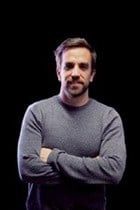The genuine connotation of a team is often misinterpreted within business settings. Major corporates often fail to realise that the halo of a project's team encircles more than just the business's employees. Consultants and agencies, who could be viewed as simply purveyors in helping accomplish a 'team's' goal, do in fact play a vital role in that team and should be viewed as part of the team. Businesses need external team-mates much like a point-guard needs a shooting wingman or a scrum needs its flanks. While they play on the outskirts, they are nevertheless a key mechanism in innovative moves and ultimately a win.
Phil Jackson, ex-Chicago Bulls basketball coach and current manager of the LA Lakers, once remarked: "The strength of the team is each individual member. The strength of each member is the team." This quote implies that each member of the team contributes equally to the success of the team and the team succeeds because the members complement each other.
The idea of complementary and collaborative efforts means the project and outcome has more potential to succeed. Today, collaboration is vastly facilitated by the increase in connectivity, social media and cloud-computing which allows a quicker route to collaboration for all participants.
Smart innovators are working on video chat rooms for global agencies to perform large-scale meetings for a fraction of the cost, whilst using smart interactive 'flipcharts' to accelerate collaboration. Most of the innovation has been focused internally - maximising owned assets is first prize.
In order for this holistic collaboration to become a norm within an organisation, horizontal leadership and a competitive inter-agency model might need a re-think, specifically around marketing agencies and consultants.
Thinkwithgoogle.com refers to Collaboration 2.0 under an article entitled "Agile Creativity". Though referring to advertising executives and how they should be running their shops, that article could be used within the context of this article. Large corporates to small start-ups need to start thinking about a team in a wider context.
Why are companies not for example investing in "war rooms" where multiple agencies and consultants can talk together? Its time to break down the "walls", often erected purely to maximise profit, but not to ensure the best creative product.
Not only does this bode well for the outputs but it can also create relationships far beyond a service contract. Some service companies do provide the space for agencies and consultants to work with them on a creative project but often miss the point by overcharging clients, getting the participants to do the work, having too many minds in one room and, most frustratingly, getting too much information without a unified direction.
A key learning is that collaboration doesn't mean that everyone is on the same level singing the same tune. The concept of a lead entity is borne as the team grows. This lead needs gradually take the role, and continues to outline consistent direction, motivation and support; much like a captain of a sports team.
If companies can start to view teams differently, provide the resources to allow for "war rooms" that are driven by technology to allow for creative flexibility and prototype thinking they will considerably accelerate Collaboration 2.0. This will allow for agile creativity, innovation and true collaboration.
